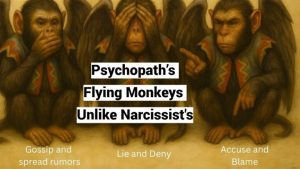- 1.1 1. Nature vs. Nurture in Mental Health
- 1.2 2. Expanded Diathesis-Stress Model
- 1.3 3. Critique of Genetic/Hereditary Paradigm
- 1.4 4. Spousal Correlation (Contagion) Phenomenon
- 1.5 5. 2025 Study on Spousal Correlations Across Cultures
- 1.6 6. Questions on Mechanisms of Contagion and Mate Selection
- 1.7 7. 2023 Mega Study on Partner Correlations for Traits
- 1.8 8. 2024 Norwegian Study on Non-Random Mating Patterns
- 1.9 9. Mechanisms Behind Partner Similarity
- 1.10 10. Overall Conclusion on Genetics and Environment
How Your Partner Infects You with Mental Illness (Nature vs. Nurture Debate)
1. Nature vs. Nurture in Mental Health
- Discussion of the age-old debate on whether mental health disorders are genetically inherited (nature) or acquired through environment and relationships (nurture). The speaker supports a combined view but leans towards environment playing a significant role by triggering predispositions. [00:00]
2. Expanded Diathesis-Stress Model
- Introduction of an expanded diathesis-stress model where psychological needs themselves are vulnerabilities, and their frustration causes stress, contributing to mental health disorders. Examples include paranoia (focused on meaning), avoidant behavior (to avoid pain), and narcissism (maintaining fantasy-based self-worth). [04:00]
3. Critique of Genetic/Hereditary Paradigm
- The speaker notes a lack of concrete proof for genetic causes in many mental illnesses, contrasting with large amounts of evidence supporting environmental impacts. They argue that reactions to unmet psychological needs are socially judged and pathologized rather than considered natural human diversity. [13:00]
4. Spousal Correlation (Contagion) Phenomenon
- Introduction to spousal correlation in mental health: spouses tend to develop similar psychiatric disorders over time regardless of genetic differences. This phenomenon challenges traditional genetic explanations and supports mental illness as a social, behavioral, and relational phenomenon. [21:40]
5. 2025 Study on Spousal Correlations Across Cultures
- Presentation of a large-scale study analyzing over six million couples from Taiwan, Denmark, and Sweden showing consistent spousal correlations for nine psychiatric disorders including schizophrenia and autism, conditions traditionally viewed as genetic. The study indicates shared psychiatric traits develop during the relationship, not before. [26:35]
6. Questions on Mechanisms of Contagion and Mate Selection
- Exploration of causes behind spousal correlation, including imitation, unconscious behavioral contagion, or assortative mating (selection of similar partners). Emphasis that contagion is mostly unconscious and robust across cultures and time. [38:00]
7. 2023 Mega Study on Partner Correlations for Traits
- Review of a 2023 meta-analysis and systematic review showing positive correlations between partners for psychological, political, religious, educational, and substance-use traits. Though traits have genetic components, behavioral convergence occurs after partnership formation. [41:40]
8. 2024 Norwegian Study on Non-Random Mating Patterns
- Analysis of a 2024 study on 200,000 couples from Norway confirms assortative mating patterns with stronger correlations in mental health than physical health. It highlights people select partners with general mental health similarity rather than identical disorders, but over time couples converge in the specific condition. The study questions some genetic assumptions. [44:50]
9. Mechanisms Behind Partner Similarity
- Discussion of four processes causing partner similarity: direct assortment (choosing similar partners), indirect assortment (selection based on correlated traits), social homogamy (environmental proximity), and convergence (becoming similar over time). These have diverse implications for genetic and epidemiological studies. [52:30]
10. Overall Conclusion on Genetics and Environment
- The speaker concludes that genetics likely determine overall vulnerability to mental illness—not specific disorders. The specific mental illness developed depends largely on environment and long-term interpersonal relationships, especially partners, supporting the contagion and spousal correlation theories. [1:00:00]
This summary organizes the core topics and key points discussed throughout the meeting, with exact timestamps to locate the original discussion within the transcript.






